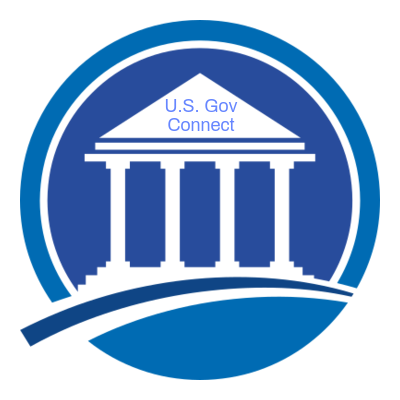The Environmental Protection Agency (EPA) Efforts to Reduce Exposure to Carcinogens and Prevent Cancer.
By Tennant Mansfield | December 26th, 2023
The Environmental Protection Agency (EPA) plays a crucial role in protecting human health and the environment. One of its primary goals is to reduce exposure to carcinogens, substances that have been shown to cause cancer. Through various initiatives and regulations, the EPA strives to prevent cancer and promote a healthier environment for everyone.
THE ENVIRONMENTAL PROTECTION AGENCY (EPA) EFFORTS TO REDUCE EXPOSURE TO CARCINOGENS AND PREVENT CANCER.

New Paragraph
-
Here are some of the key efforts undertaken by the EPA in this area.
Regulating Agency
The EPA is responsible for regulating and overseeing the use of chemicals, pollutants, and other substances that can potentially cause cancer. By conducting rigorous research and risk assessments, the agency determines safe exposure levels and establishes regulations to protect public health. These regulations apply to various industries, including manufacturing, transportation, agriculture, and consumer products.
Identifying Carcinogens
The EPA continuously evaluates substances to identify and classify those that are known or suspected to be carcinogens. This involves a comprehensive review of scientific studies and data to assess the potential health risks posed by different substances. The agency works closely with other scientific organizations and experts to ensure accurate and up-to-date information.
Setting Standards
Once a substance is deemed a carcinogen, the EPA establishes standards and guidelines for its safe use. These standards often include permissible exposure limits, emission controls, and proper handling and disposal procedures. By setting clear guidelines, the EPA aims to reduce the exposure to carcinogens and minimize the risk of cancer among workers and the general population.
Monitoring and Enforcement
The EPA actively monitors industries and facilities to ensure compliance with regulations on carcinogens. This involves inspections, sampling, and data collection to assess pollution levels and exposure risks. If violations are found, the agency takes enforcement actions, such as fines, penalties, or legal proceedings, to hold responsible parties accountable and secure compliance with environmental regulations.
Educating the Public
In addition to its regulatory role, the EPA actively educates the public about the risks associated with carcinogens and the importance of reducing exposure. The agency provides information on its website, conducts outreach programs, and collaborates with community organizations to raise awareness about the dangers of certain substances and promote healthier habits.
Collaborating with International Partners
Carcinogens do not respect national borders, which is why international collaboration is essential in addressing this issue. The EPA actively participates in global initiatives and partnerships to exchange knowledge, harmonize regulations, and collectively work towards reducing exposure to carcinogens worldwide. This collaboration allows for greater efficiency in preventing cancer and protecting public health on a global scale.
The EPA's efforts to reduce exposure to carcinogens and prevent cancer are vital for safeguarding public health and ensuring a safer environment. Through rigorous regulation, monitoring, education, and international collaboration, the agency plays a crucial role in minimizing the risks posed by carcinogenic substances. However, it is important for individuals to remain vigilant, take personal precautions, and support the EPA's ongoing efforts to create a healthier and safer world for all.
U.S. Gov Connect For Articles And Videos.
Please Update From Articles and Videos By Date.
Ecosystems By U.S. Gov Connect For Articles And Videos.
 Learn More
Learn MoreEcosystems provide essential services such as regulating air and water quality, pollination, and carbon sequestration. They include forests, wetlands, oceans, and grasslands that support an array of plant and animal species. These diverse ecosystems are not only beautiful and rich in biodiversity, but they also contribute significantly to the country's economy through tourism, agriculture, and other industries.
Finance By U.S. Gov Connect For Articles And Videos.
 Learn More
Learn MoreThe finance and investments sector in the United States is a critical component of the country's economy. As one of the largest and most developed financial markets in the world, the United States offers a wide range of opportunities for individuals and businesses to grow their wealth and invest their money wisely.
Legal By U.S. Gov Connect For Articles And Videos.
 Learn More
Learn MoreThe legal system in the United States is based on the principle of federalism, which means that power is divided between the federal government and individual state governments. This division of power is outlined in the Constitution, which is the founding document of the United States. The Constitution establishes a system of checks and balances, ensuring that no one branch of government becomes too powerful.
Health By U.S. Gov Connect For Articles And Videos.
 Learn More
Learn MoreIn the modern world, technology has revolutionized many industries, and the healthcare sector is no exception. One of the most exciting developments in healthcare is the use of Artificial Intelligence (AI) in providing health services. AI has the potential to transform the way healthcare is delivered and improve patient outcomes.
Science And Technology By U.S. Gov Connect For Articles And Videos.
 Learn More
Learn MoreScience and technology are two closely intertwined fields that have revolutionized the world we live in today. They have brought about countless advancements and innovations that have improved our quality of life and made the impossible, possible. From advancements in medicine to the development of advanced electronic devices, science and technology play a vital role in shaping our society.
Entitlements By U.S. Gov Connect For Articles And Videos.
 Learn More
Learn MoreThe United States offers a variety of programs aimed at providing support and assistance to its citizens. These entitlement programs, as they are often referred to, play a crucial role in ensuring the well-being and welfare of individuals and families throughout the nation. Let's explore some of these programs and their significance.
Harnessing the Potential of Government Artificial Intelligence.
 Learn More
Learn MoreArtificial Intelligence (AI) has become one of the most transformative technologies of our time, with the potential to revolutionize industries across the board. From healthcare to finance, education to marketing, AI is already making a significant impact on how businesses operate and how society functions.
Travel Of U.S.. Gov Connect
 Learn More
Learn MoreTraveling can be an exciting and enriching experience, but it also requires careful planning and organization, especially when it comes to essential travel documents. Without the proper paperwork, you may encounter obstacles or even be denied entry to your destination country.
U.S. Gov Connect Of Legal, Health, Finances And Ecosystems By Videos.


